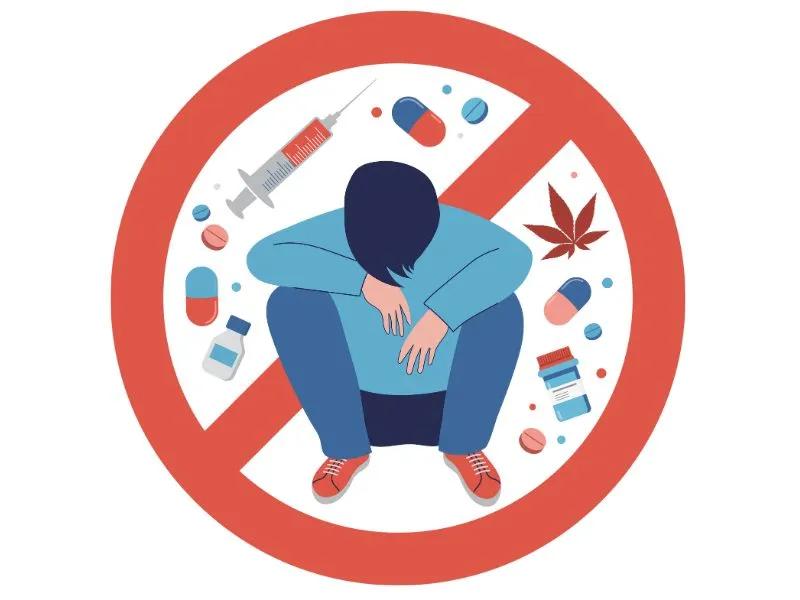
1 Introduction
Substance use and mental health are deeply interconnected aspects of overall well-being. Substance use refers to the consumption of alcohol, drugs, or other psychoactive substances, which, in some cases, can develop into substance use disorders characterized by dependency and negative impacts on daily life. Mental health encompasses emotional, psychological, and social well-being, influencing how we think, feel, and act. Challenges in one area often affect the other; for instance, people with mental health disorders may turn to substances to self-medicate, while substance use can exacerbate or trigger mental health issues. Addressing both requires an integrated approach that considers their complex relationship to promote recovery and resilience.
This visual analysis highlights the alarming global trends in drug use, mental health, and substance-related deaths.
2 Analysis
2.1 Males are disproportionately more affected by drug use mortality
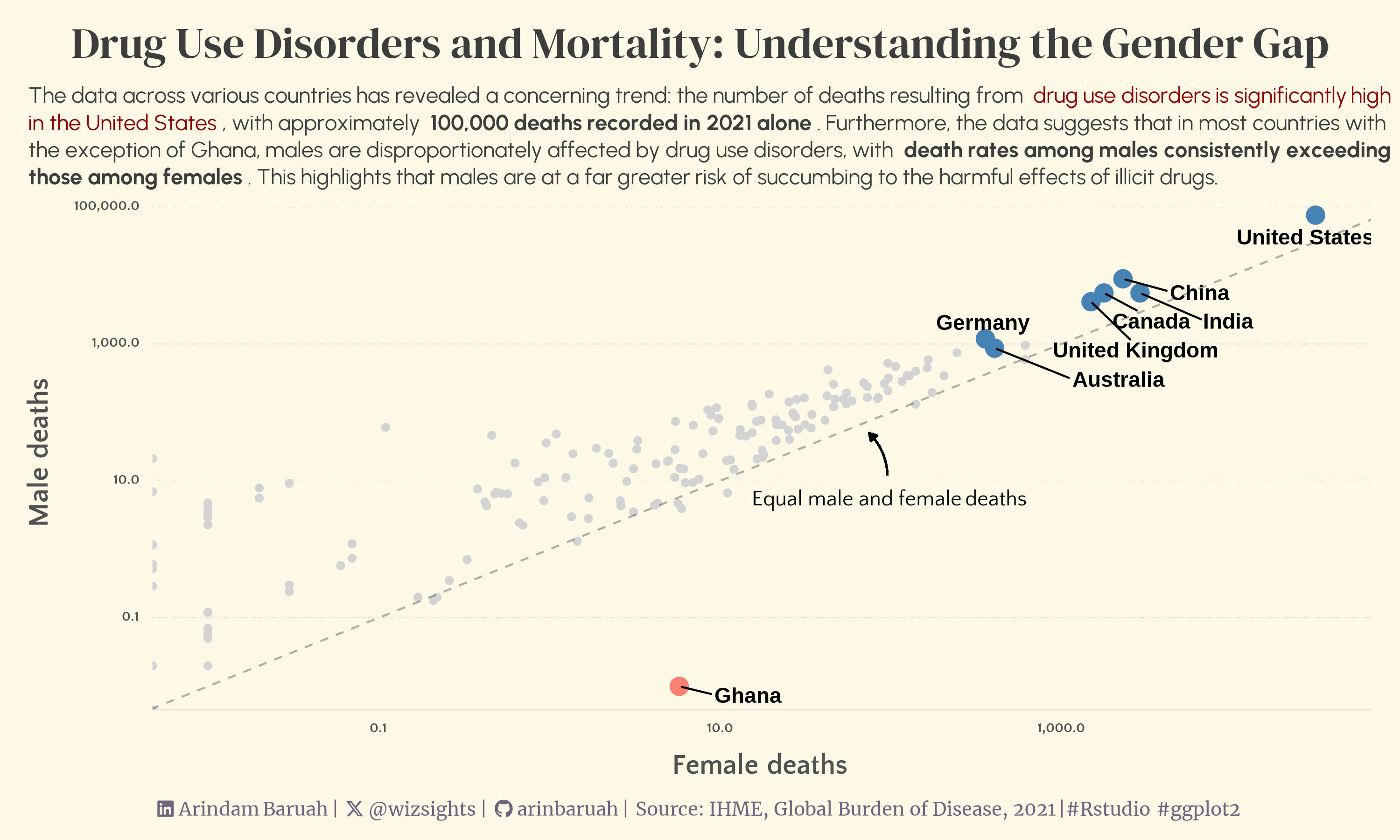
2.2 The USA and Canada are the worst affected by mental health and drug use deaths
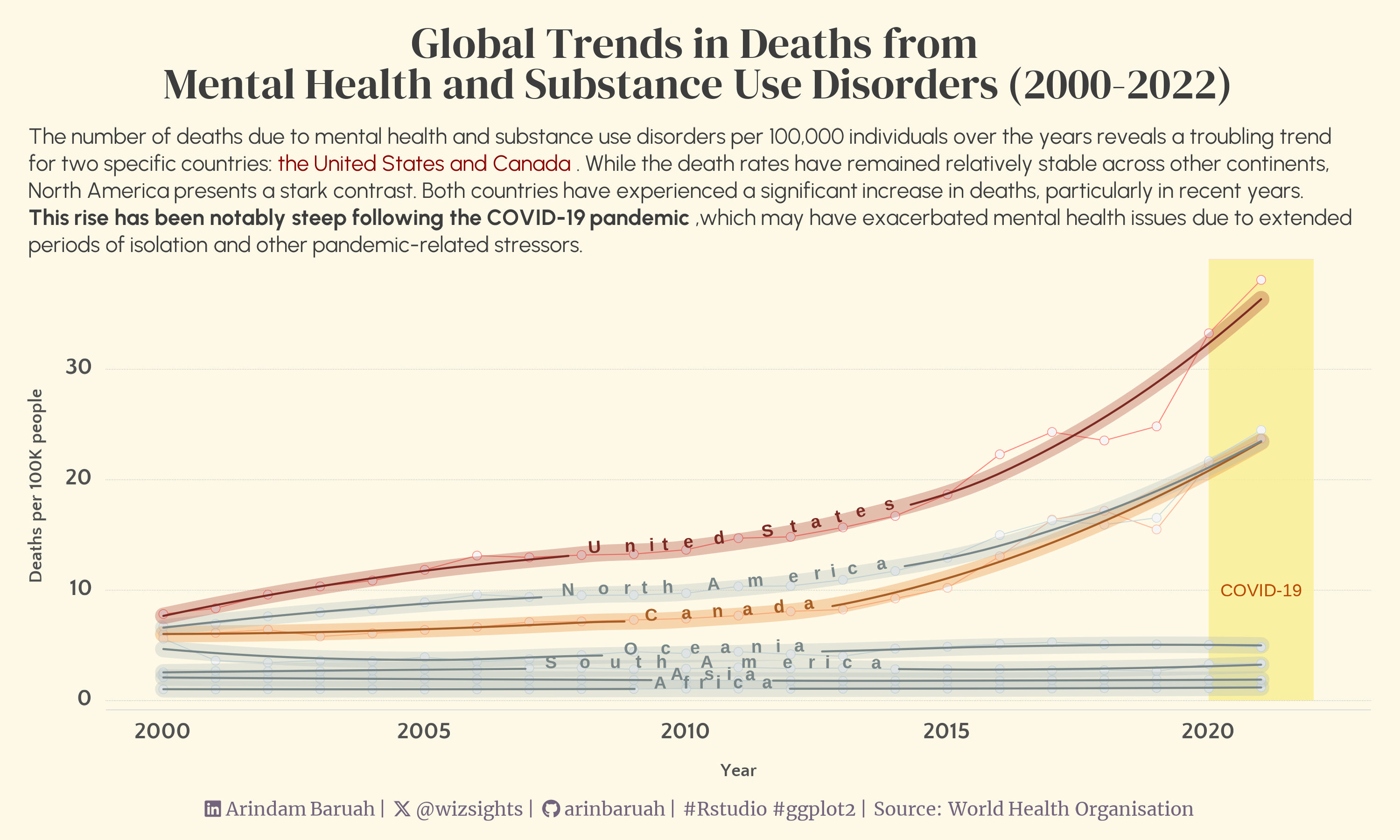
2.3 Deaths among those aged 15-49 are persistently higher
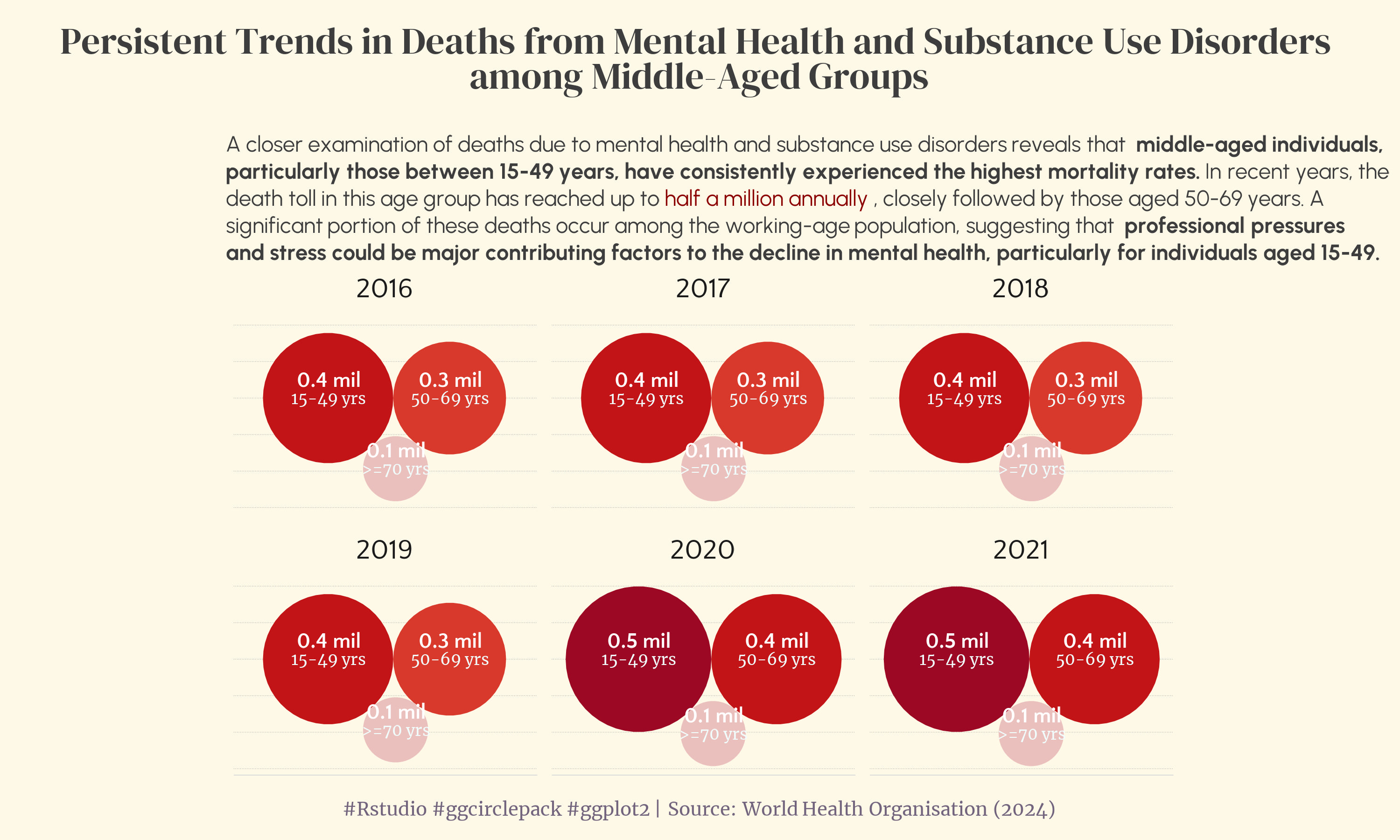
2.4 Global survey of employers indicates that significant progress is still needed to adequately protect employees from mental health challenges.
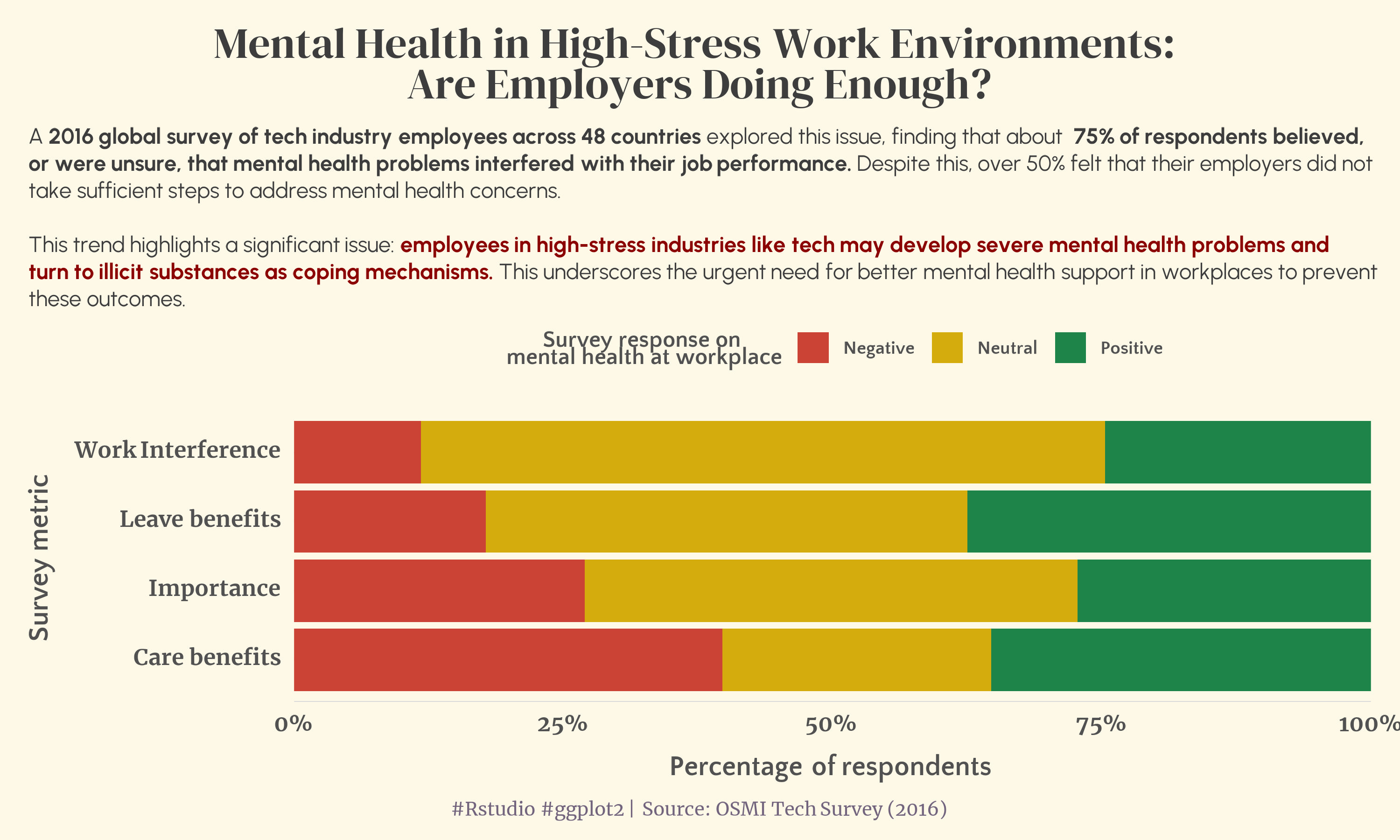
2.5 Higher risk of drug use for those diagnosed with mental health conditions
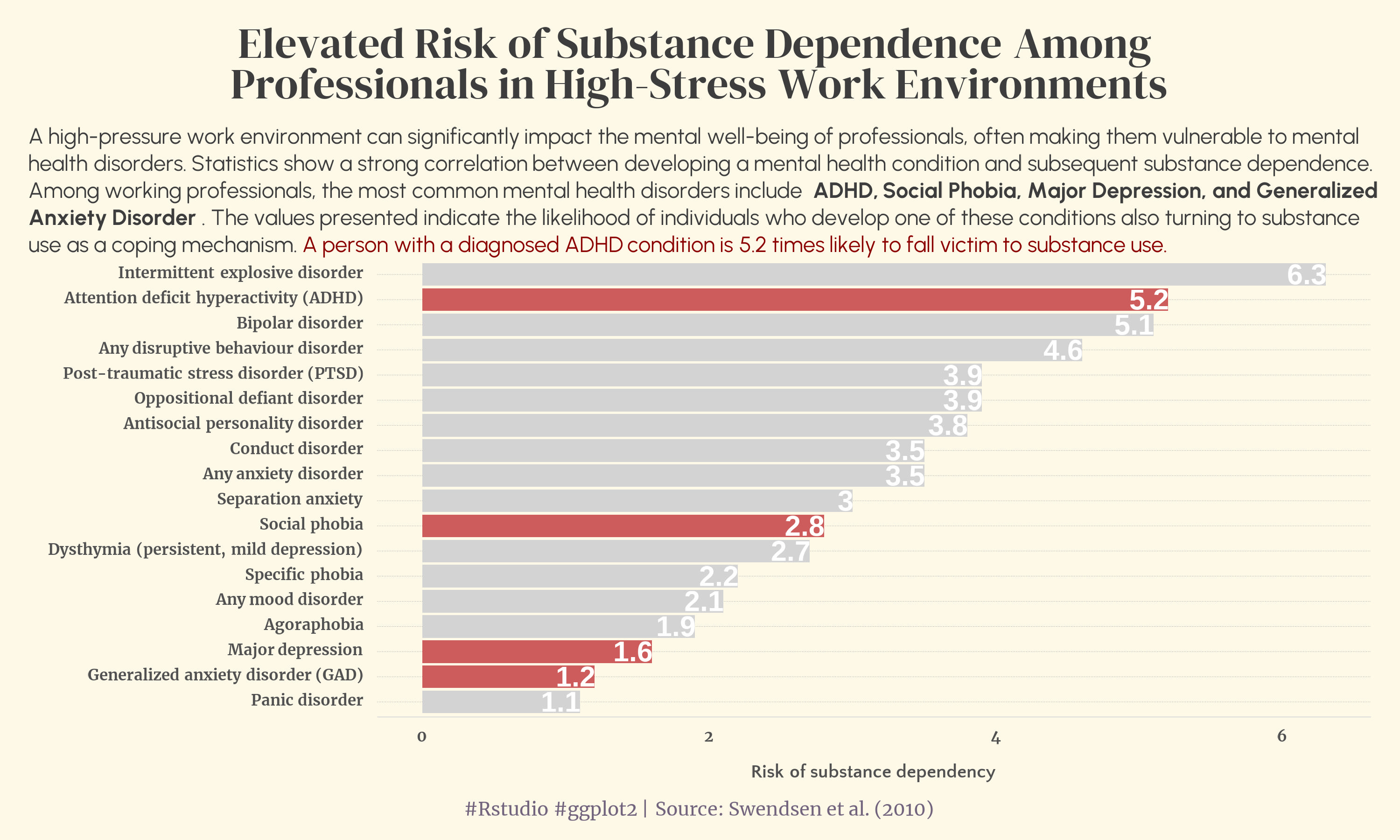
2.6 Tobacco remains the most lethal substance of abuse
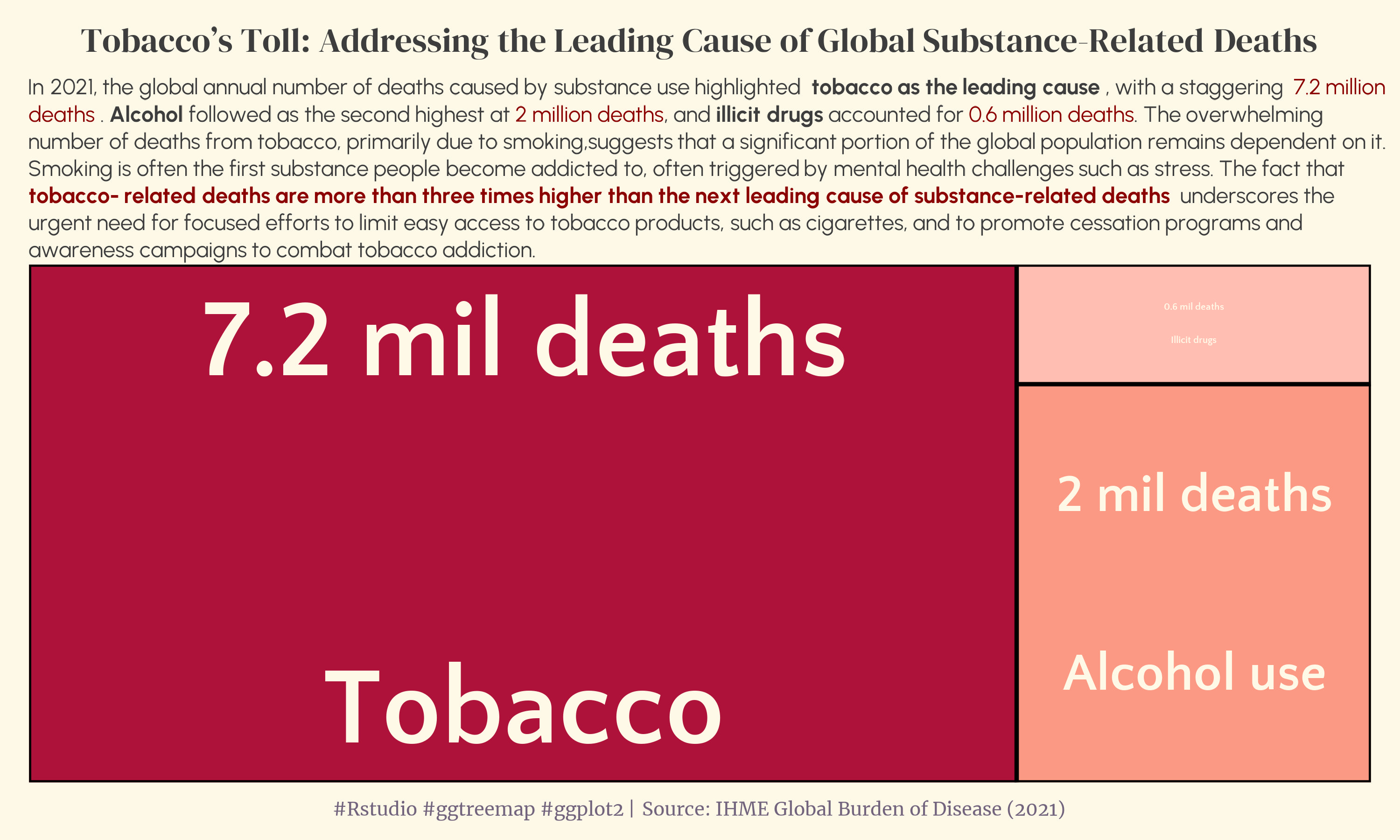
2.7 Encouraging news: Cigarette consumption is on the decline

2.8 Concerning news: The global consumption of synthetic opioids is on the rise
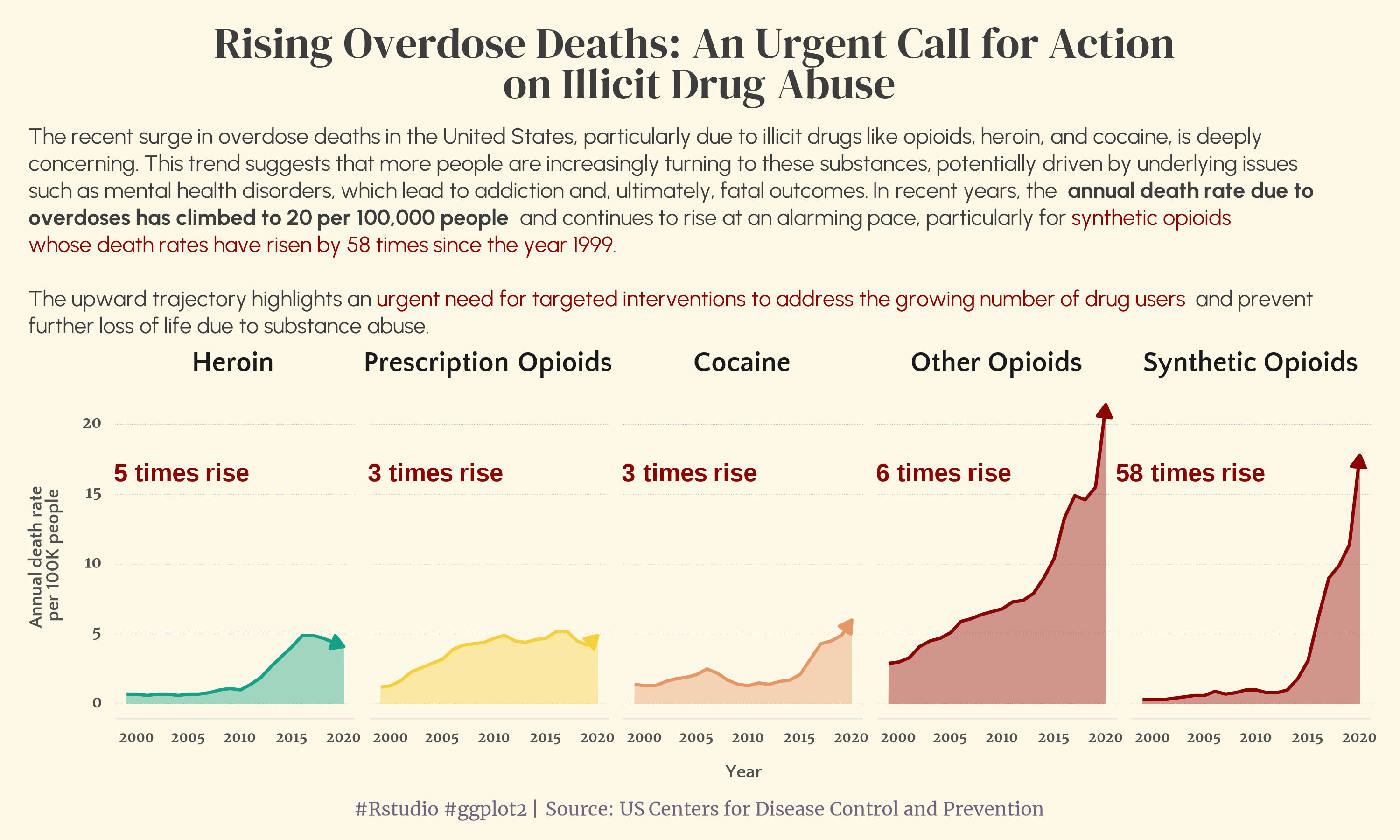
3 Summary
The infographic titled “The Dual Crisis: Mental Health and Substance Abuse in the Modern World” highlights the alarming global trends in drug use, mental health, and substance-related deaths. It emphasises that men are disproportionately affected by drug-related mortality. Deaths from mental health and substance use disorders have significantly increased, especially in the U.S. and Canada, with a sharp spike following the COVID-19 pandemic. Among middle-aged individuals, those aged 15 to 49—especially working professionals in high-stress environments—are most affected by substance use disorders, suggesting work-related stress as a major contributing factor.
Tobacco remains the most lethal substance, causing over 7.2 million deaths annually—three times more than alcohol and significantly higher than illicit drugs. However, there’s a positive trend in declining cigarette consumption, with usage falling since 1974 and projections suggesting continued decline. On the other hand, the data also presents a concerning rise in synthetic drug use, with opioid overdose deaths surging by 58 times since 1990. The data underscores the urgent need for mental health support, particularly in high-stress industries, where professionals are at an elevated risk of substance dependence. Employers’ lack of adequate mental health support is also highlighted as a critical issue.